|
AGORA - Philosophical Topics Important thinkers on important life-issues |
- Attitudes
- Authenticity
- Death
- Philosophizing
- Friendship
- Beauty
- Happiness
- Inner Freedom
- Inner Truth
- Love
- Meaning
- Music
- Right & Wrong
- Romantic Love
- Sex
- Solitude
- Sublime
- The Other Person
This month's topic: ON FRIENDSHIP
What does it mean to be a friend?
WEEK 1 - C.S. Lewis WEEK 2 - Kant WEEK 3 - Emerson WEEK 4 - Nietzsche 
An issue for reflection
WHAT DOES IT MEAN
TO BE A FRIEND?- “I have known Mary for a long time, but we became friends only last year.”
What happens when you become friends? When does an acquaintance turn into friendship? Indeed, whatdoes it mean to be a friend?
- “I am his friend, but he is not my friend.”
Is there such as thing as a one-sided friendship? Or is friendship necessarily symmetric?
- “My dog is my best friend!”
Can friendship exist between two unequal partners? Can you be a friend of a cow? And of a frog? Can you be a friend of your laptop computer? What could that possibly mean?
- “I am my own friend!”
Is that possible?

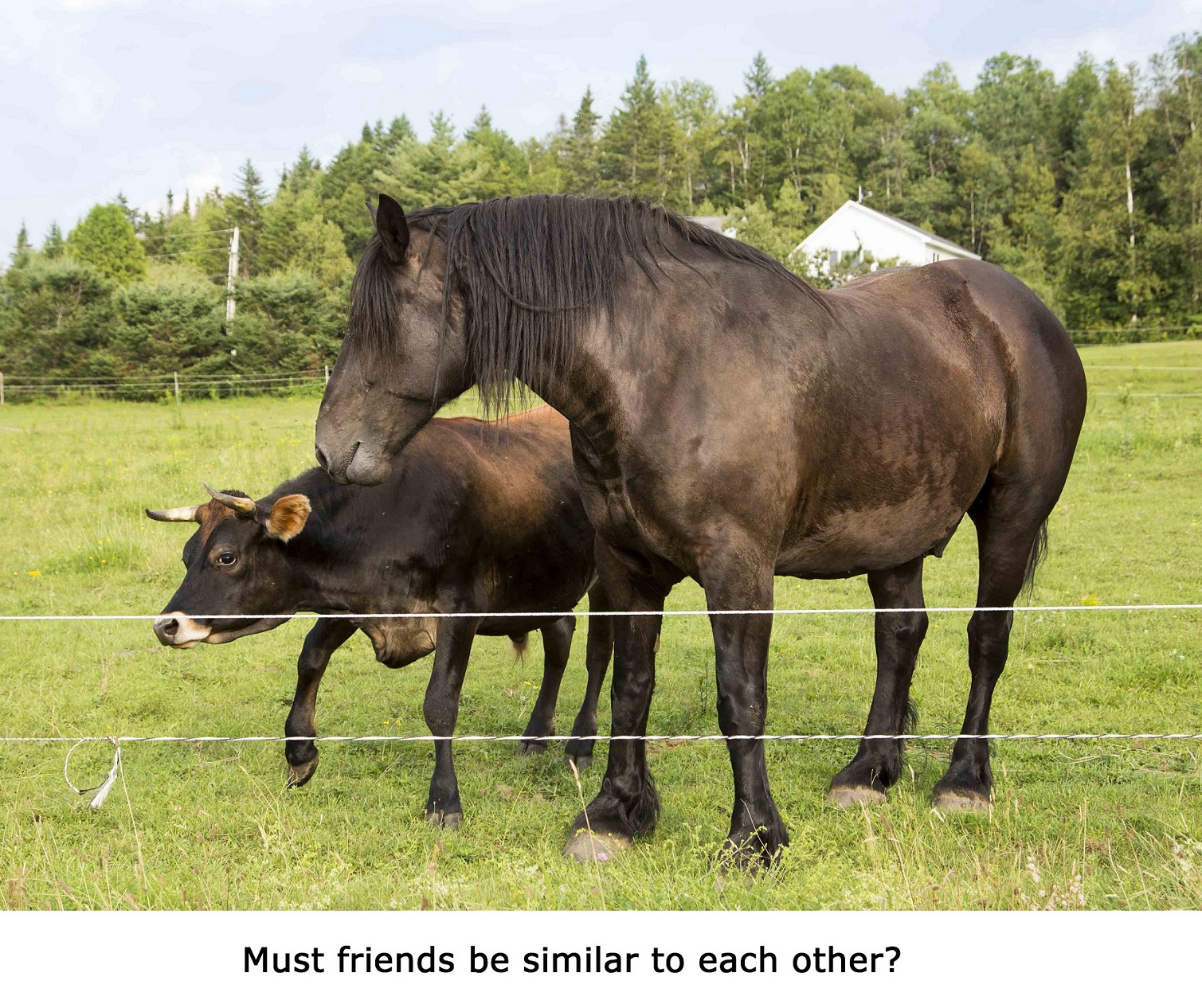
C.S. Lewis
Friends standing shoulder to shoulder
 C.S. Lewis (1898-1963) was an English novelist and thinker. Although he is best known for his fantasies and science fiction novels (such as The Chronicles of Narnia), he was also a philosophy and English professor at Oxford University and Cambridge University.
C.S. Lewis (1898-1963) was an English novelist and thinker. Although he is best known for his fantasies and science fiction novels (such as The Chronicles of Narnia), he was also a philosophy and English professor at Oxford University and Cambridge University.
The following quotation is adapted from Lewis’ book The Four Loves (1960), in which he discusses Storge (empathy bond), Philia (friendship bond), Eros (erotic bond), and Agape (charity love).To the ancients, friendship seemed the happiest and most fully human of all loves, the crown of life and the school of virtue. The modern world, in comparison, ignores it.
[…] We can have erotic love and friendship for the same person, yet in some ways nothing is less like a Friendship than a love-affair. Lovers are always talking to one another about their love; Friends hardly ever talk about their Friendship. Lovers are normally face to face, absorbed in each other; Friends are side by side, absorbed in some common interest. Above all, Eros (while it lasts) is necessarily between only two people. But two is not the necessary number of Friendship, it is not even the best… Hence, true Friendship is the least jealous kind of love. Two friends delight to be joined by a third friend, and three by a fourth, if only the newcomer is qualified to become a real friend.
[…] Friendship arises out of mere companionship when two or more companions discover that they have in common some insight or interest, or even taste, which other people do not share, and which each of them believed to be his own unique treasure (or burden). The typical expression of opening Friendship would be something like, “What? You too? I thought I was the only one.”
[…] Lovers seek for privacy. Friends find this solitude about them, this barrier between them and the herd, whether they want it or not.
[…] In this kind of love, as Emerson said, Do you love me? Means Do you see the same truth? – Or at least, Do you care about the same truth? The person who agrees with us that some question, which is little regarded by others, is of great importance, can be our Friend. He doesn’t have to agree with us about the answer.
[…] When the two people who discover that they are on the same secret road are of different sexes, the friendship which arises between them will very easily pass into erotic love… And conversely, erotic love may lead to Friendship between the lovers… The co-existence of Friendship and Eros may help us realize that Friendship is in reality a love, and even a love that is as great as Eros.
[…] Friendship, unlike Eros, is not inquisitive. You become a person’s Friend without knowing or caring whether he is married or single, or how he earns his living. What do all these matters have to do with the real question, Do you see the same truth? In a true circle of Friends, each man is simply what he is: he stands for nothing but himself… Eros will have naked bodies; Friendship naked personalities.

Here is one way to reflect on these texts
The quotations which you will find here about friendship, by Lewis and others, are a good starting point for thinking about the meaning of friendship. We don't necessarily have to agree with what those philosopher said - a deep philosophical text can inspire us to think deeply even if we don't agree with it.
C.S. Lewis suggests several characteristics of friendship: Friends share a common interest, they stand shoulder-to-shoulder facing a common way, they are not jealous of each other's friends, they are separate from the rest of the world, they are not interested in each other's private affairs, and so on.
Of course, this may be different from your own understanding of what friendship means. What, then, is your understanding of friendship?
Here is one way to answer this question: Go through Lewis' text sentence after sentence, and whenever necessary change the words to fit them to your own view. The result will be a new philosophical text made of Lewis' original sentences, but corrected by you. It will have the same general structure of Lewis' original text, but it will now express your own understanding of what friendship means.
Immanuel Kant
Friendship as balance between love and respect
Immanuel Kant (1724-1804) was a major figure in modern philosophy. Kant was a German philosopher who wrote influential books on many topics, including metaphysics, theory of knowledge, and ethics. He argued that the source of morality is reason, and that it defines our moral duties.
The following quotation is somewhat simplified from Kant's complex original (Metaphysic of Morals, Part II: The doctrine of virtue, section 46). Note the role of moral duty in friendship, as well as the balance between love and respect.
 Friendship, if it is perfect, is an association of two persons through equal and mutual love and respect.
Friendship, if it is perfect, is an association of two persons through equal and mutual love and respect.[...]
In this balance, love can be regarded as attraction, and respect can be regarded as repulsion. While the principle of love requires friends to come closer together, the principle of respect requires them to keep an appropriate distance… Even the best friends should not make themselves too familiar in their relations to one another.[...]
From a moral perspective, a friend has the duty to point out to his partner his faults, because this is in the partner’s best interest, and it is therefore a duty of love. His partner, however, regards this as a lack of respect… Even the mere fact that his friend examines him and admonishes him feels like an insult.[...]
How good it is to have a friend at time of need – provided that he is an active friend who is ready to help at his own expense! Yet, it is also a heavy burden to feel chained to the fate of another person, and to feel weighed down by someone else’s needs. Therefore, friendship cannot be aimed at mutual advantage; the association must be purely moral. The help which each friend may expect must not be regarded as the purpose of his friendship, or else the friend would lose the other’s respect. It must be understood only as an external expression of inner love of the heart, and should not be put to test, which is always dangerous. In other words, each friend must be generous and try to spare the other his own burden, to carry it solely by himself, and even to conceal it from the other. And yet, he can feel lucky that in case of need he would be able to count with assurance on the other’s help.[...]
It is sweet to feel a mutual possession verging on complete fusion into one person. Friendship is a thing so delicate, that it is never for a moment safe from rifts, if we let it rest on emotions, and if we fail to subject it to rules for preventing over-familiarity, and for limiting mutual love by the requirements of respect… In any case, the love of friendship cannot be a sudden and overwhelming passion, because passion is blind in its choice, and in the end it goes up in smoke.
Ralph Waldo Emerson
Friendship as elevating the soul
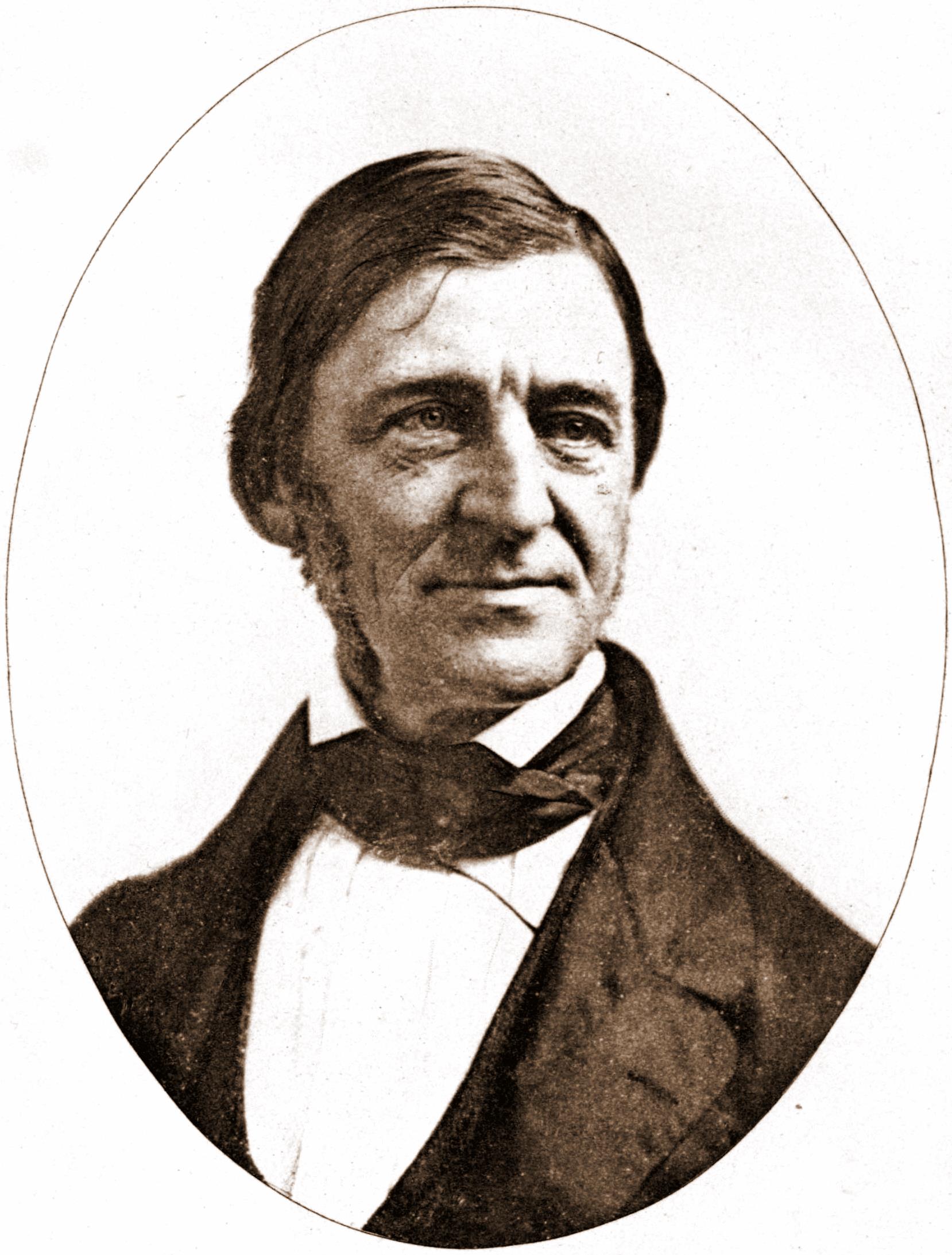 Emerson (1803-1882) was an American philosopher, writer and poet, who was the leader of the Transcendentalist movement of the 19th century.
Emerson (1803-1882) was an American philosopher, writer and poet, who was the leader of the Transcendentalist movement of the 19th century. The following passage is adapted from Emerson’s essay “Friendship” (published in Essays: First Series in 1841). In this essay, Emerson presents a sublime vision of friendship – so sublime that it is almost impossible for humans to achieve it fully. True friendship is not for fun or convenience, but for spiritual inspiration. Friends are valuable not because they are somebody to chat with, but because they help elevate the soul. True friendship has little to do with practical matters and with everyday problems – it involves the higher part of ourselves. True friendship is a spiritual companionship.
I must feel pride in my friend’s accomplishments as if they were mine – wild, delicate, expressing his virtues. When he is praised, I feel as warmly as the lover when he hears praise about his beloved girl.
[…]
We should give dignity to each other’s daily life, and embellish it by courage, wisdom, and unity. Daily life should never degenerate into something usual and established, but should be alert and inventive, and add meaning to what used to be dull work.
[…]
Why should we desecrate noble and beautiful souls by intruding on them? Why should you insist on rash personal relations with your friend? Why should you go to his house, or know his mother and brother and sisters? Why should he visit you at your house? Are these things relevant to your relations? Leave this touching and clawing. Let him be a spirit to me. I want a message from him, a thought, a sincerity, a glance, but not news, nor pottage. I can get politics, and chat, and neighborly services from cheaper companions. Shouldn’t the company of my friend be to me poetic, pure, universal, and great as nature itself? Should I feel that our connection is profane in comparison with this cloud that sleeps on the horizon, or that waving grass that divides the stream? Let us not vilify it, but raise it to that standard.
Do not try to reduce your friend’s great, defying eye, that scornful beauty of his attitude and action, but rather fortify them and enhance them... Let him always be to you a sort of beautiful enemy, untamable, devoutly revered, and not a trivial convenience to be soon outgrown and thrown aside.

[…]
Let us carry that which is so great as friendship with as much grandeur of spirit we can. Let us be silent, — so we may hear the whisper of the gods. Let us not interfere.
[…]
The higher the standard we demand of friendship, the less easy it is to achieve it with flesh and blood. We walk alone in the world. Friends who are like those we desire are dreams and fables. But a sublime hope always cheers the faithful heart, that elsewhere there are souls which can love us, and which we can love.
[…]
I do with my friends as I do with my books. I leave them where I can find them, but I rarely use them… I cannot afford to speak much with my friend. If he is great, he makes me so great that I cannot lower myself to converse. In the great days, visions hover in front of me in the sky. I should then dedicate myself to them… Then, although I value my friend, I cannot afford to talk with him and study his visions, or else I would lose my own.
[…]
The essence of friendship is entireness, a total greatness and trust. It must not suppose, or provide for weakness. It treats its object as a god, that it may deify both.
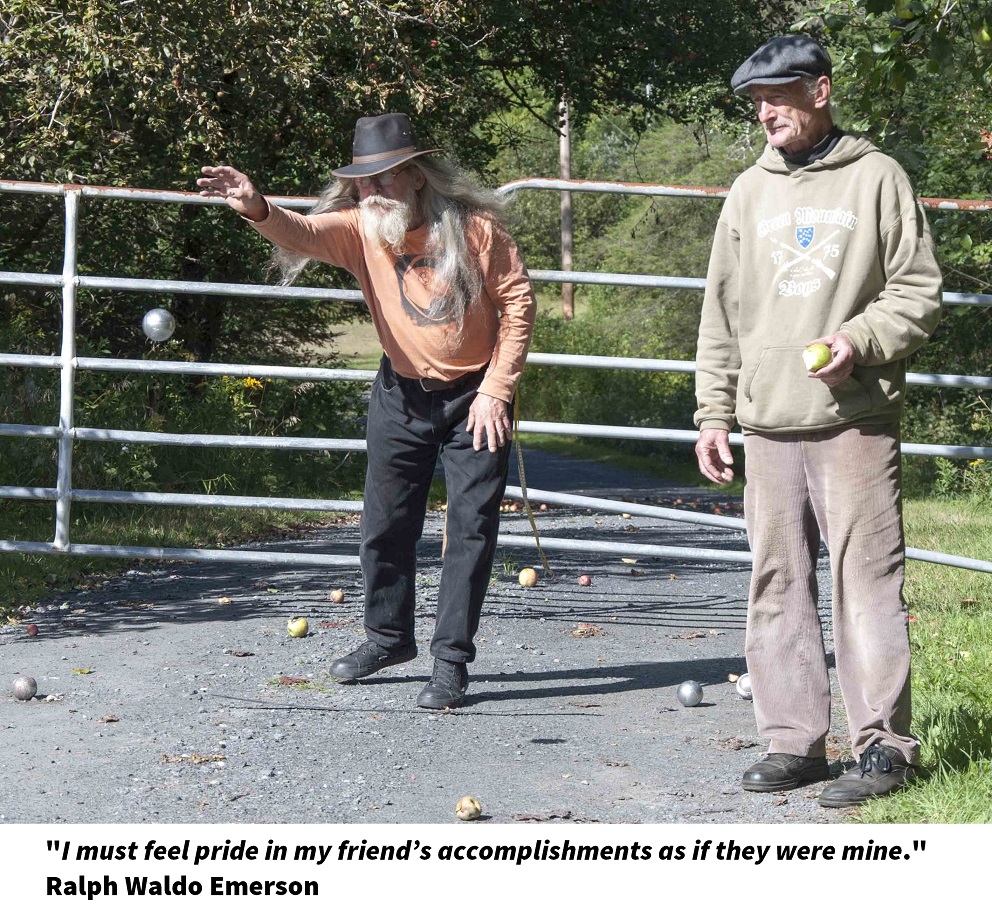
Drawing a "map of ideas" of Emerson's essay
What is the essence of Emerson's view of friendship? Beyond the many details, what are the core ideas in his theory?
Every philosophical theory can be regarded as a network of ideas, or even a network of concepts. So in fact, you can draw on paper this network, like a map of ideas. This map will show the main concepts of the theory, and how they are connected to each other.
To see how this is done, you are invited to watch the following video (7:30 minutes). In this video, four members of an online companionship drew a "map" of Emerson's theory of friendship, in order to have a better understanding of it.
{youtube}Pex-H8v9vtI{/youtube}
Friedrich Nietzsche
The friend as an opponent
Friedrich Nietzsche (1844-1900) was a German philosopher and one of the most influential thinkers in modern times. In his writings he critiqued his contemporary Western culture, its norms, beliefs, religious faith, and values. He questioned and ridiculed traditional attitudes to life, and offered instead a vision based on individualism, atheism, and the ideas of master morality, self-overcoming, and the will to power.
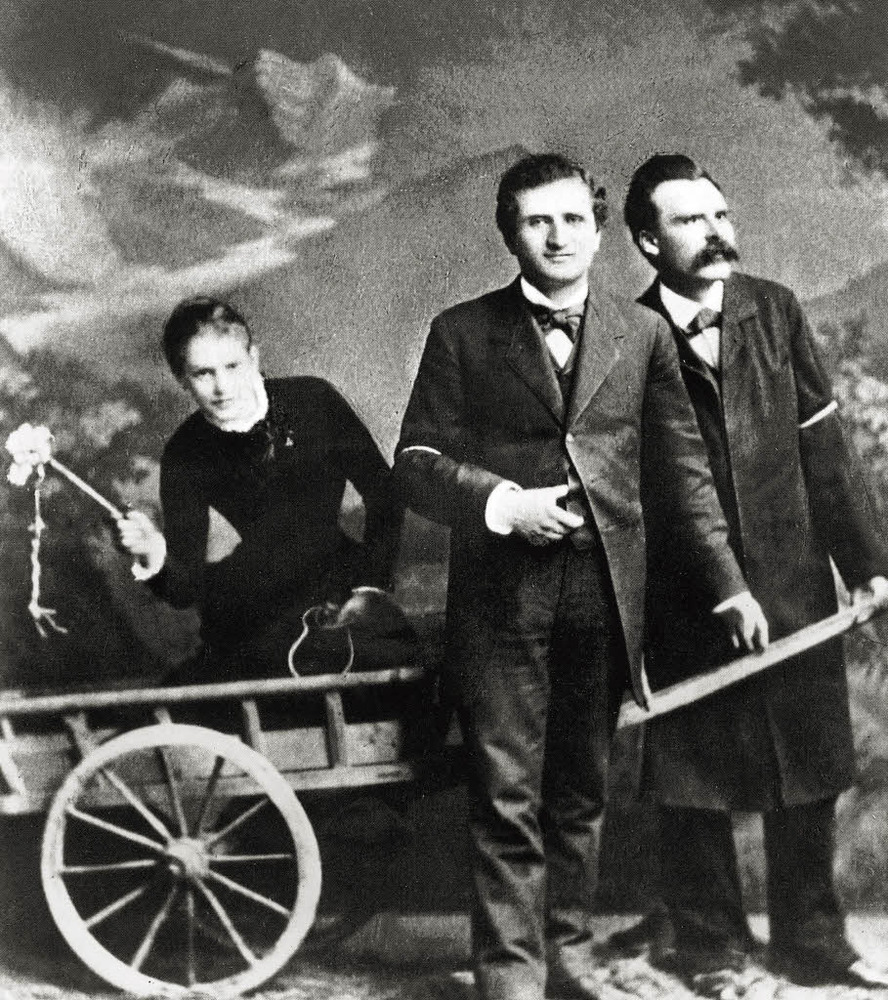 The following passage is adapted from the chapter “On the friend” in Nietzsche’s masterpiece Thus Spoke Zarathustra. Zarathustra appears in this book as a prophet who brings a new vision to humanity. He tells us that most people live a small life of weakness, petty satisfactions and comforts, and submission to the crowd. But it is also possible to live a fuller and nobler life. This is a life of constant passionate struggle – primarily a struggle to overcome your small self, and re-create yourself and your values. For Nietzsche, friendship is one of many fields of such a struggle. True friends are not nice and charitable to each other. Without struggle and effort, you become passive and complacent. Therefore, “Compassion for your friend should conceal itself under a hard shell, so that when you bite on it you will break a tooth.”
The following passage is adapted from the chapter “On the friend” in Nietzsche’s masterpiece Thus Spoke Zarathustra. Zarathustra appears in this book as a prophet who brings a new vision to humanity. He tells us that most people live a small life of weakness, petty satisfactions and comforts, and submission to the crowd. But it is also possible to live a fuller and nobler life. This is a life of constant passionate struggle – primarily a struggle to overcome your small self, and re-create yourself and your values. For Nietzsche, friendship is one of many fields of such a struggle. True friends are not nice and charitable to each other. Without struggle and effort, you become passive and complacent. Therefore, “Compassion for your friend should conceal itself under a hard shell, so that when you bite on it you will break a tooth.”
Our faith in others betrays the areas in which we would like to have faith in ourselves. Our longing for a friend is our betrayer. And often love is the only device to overcome envy. And often one attacks and makes an enemy in order to conceal that one is open to attack. “At least be my enemy!” – Thus speaks true respect, which does not dare to ask for friendship.
If one wants a friend, then one must also want to wage war for him: and in order to wage war, one must be able to be an enemy.
In a friend, one should still honor the enemy. Can you go close to your friend without going over to him?
In a friend one should have one’s best enemy. You should be closest to him in heart when you resist him.
You want to wear no clothing before your friend? Should it be an honor for your friend that you give yourself to him as you are? But for that, he curses you to the devil. Whoever makes no secret of himself outrages others; you have so much reason to fear nakedness. Indeed, if you were gods, then you might be ashamed of your clothes. You cannot groom yourself too beautifully for your friend, because you should be to him an arrow and a longing for the overman.
Have you ever seen your friend asleep – and discovered how he looks? What is the face of your friend, after all? It is your own face, in a rough and imperfect mirror.
Have you ever seen your friend asleep? Weren’t you shocked that your friend looks like that? Oh, my friend, man is something that must be overcome.The friend should be a master of guessing and keeping silent: you must not want to see everything. Your dream should reveal to you what your friend does while awake.
Your compassion should be a guess – to know first whether your friend wants compassion. Perhaps what he loves in you is your unbroken eye and the look of eternity. Compassion for your friend should conceal itself under a hard shell, so that when you bite on it you will break a tooth. That way, it will have delicacy and sweetness.
Are you pure air and solitude and bread and medicine to your friend? Many cannot loosen their own chains, and can nevertheless redeem their friends.
[...]Oh, how repulsive is your poverty, you men, and the stinginess of your souls! As much as you give to your friend, I will give even to my enemy, and I will not be poorer for it. There is comradeship: let there be friendship!
Thus spoke Zarathustra.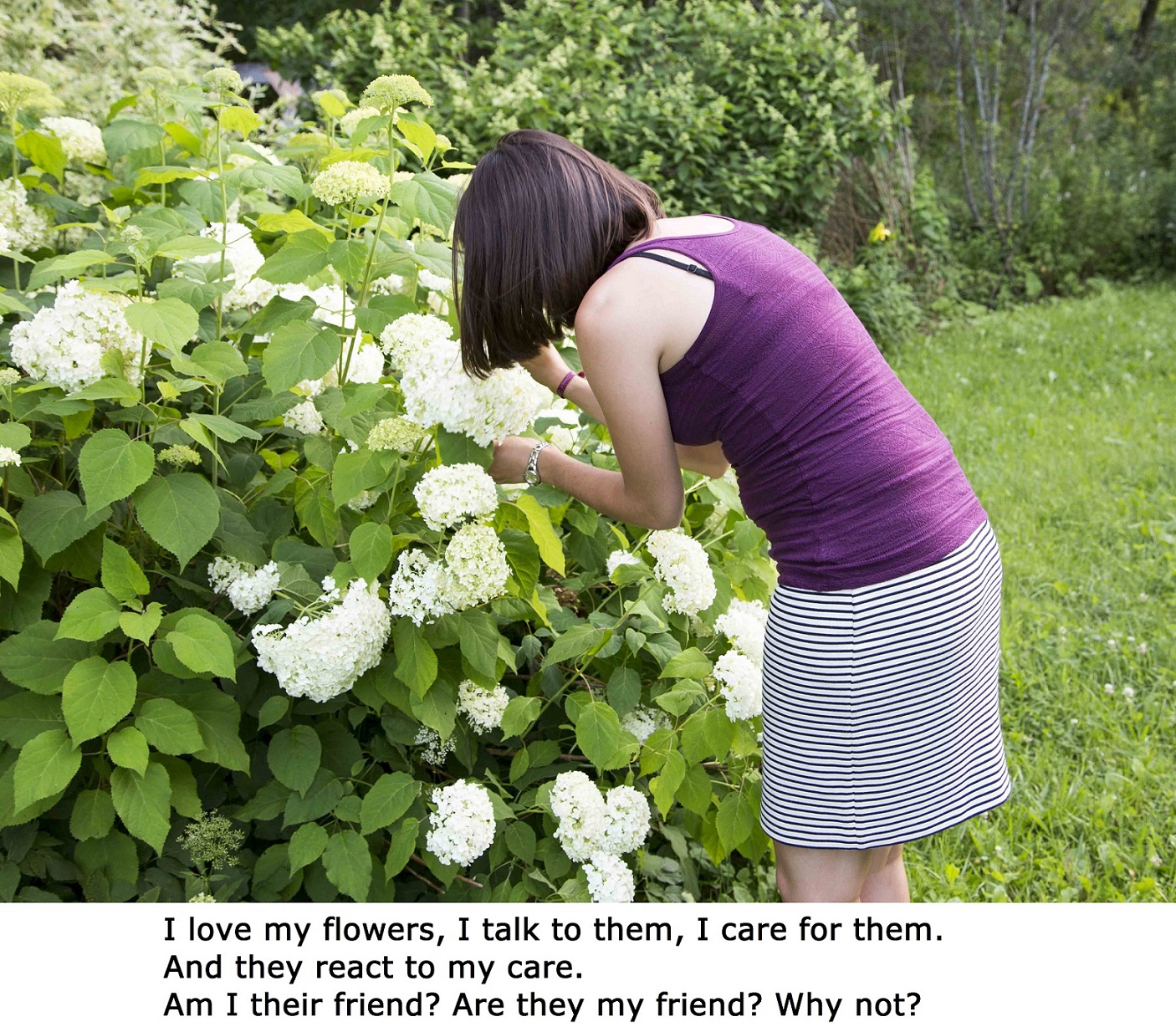
- Authenticity